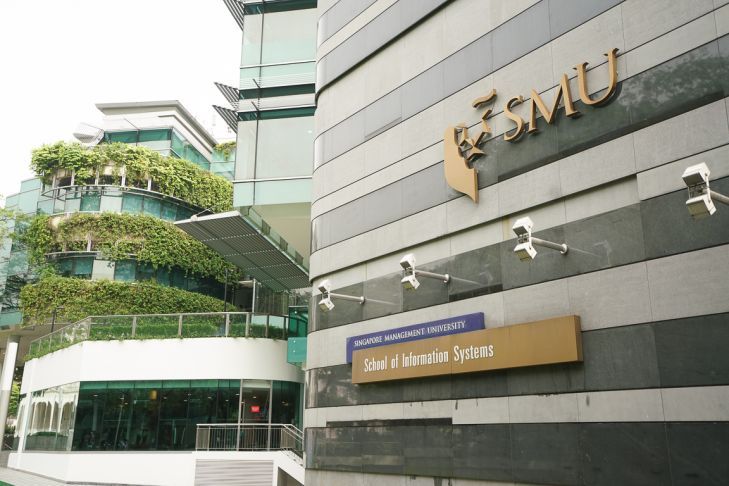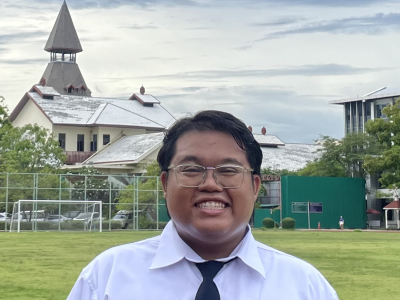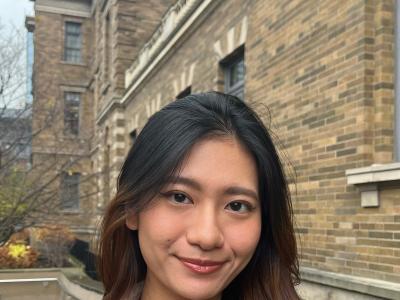
SINGAPORE, 25 November 2019 (Monday) – Associate Professor Steven Hoi, currently the Managing Director of Salesforce Research Asia after being on leave from Singapore Management University (SMU) School of Information Systems (SIS) to take up the appointment, and Associate Professor David Lo also from SIS, have been named an ACM Distinguished Member for their outstanding scientific contributions to computing.
They are among the 62 worldwide to achieve this recognition in 2019.
ACM, the Association for Computing Machinery, is the world’s largest educational and scientific computing society. The Distinguished Member programme recognises those ACM members with at least 15 years of professional experience and five years of continuous Professional Membership who have achieved significant accomplishments or have made a significant impact on the computing field. In addition, it is expected that a Distinguished Member serves as a mentor and role model, guiding technical career development and contributing to the field beyond the norm. ACM Distinguished Membership recognises up to 10% of ACM's top members from around the world.
Associate Professor Steven Hoi

Assoc Prof Hoi said, “I am honoured and greatly humbled to be named an ACM Distinguished Member. I would like to offer my sincerest gratitude to all my collaborators and students for their valuable support and contributions to my professional career, and to SMU for providing a dynamic and supportive research environment that has enabled me to undertake machine learning and artificial intelligence research in Singapore.”
Assoc Prof Hoi’s research contributions cover both fundamental research in machine learning methodologies, and practical machine learning research for a wide range of real-world application domains in artificial intelligence (AI) and data science. These include multimedia information retrieval, computer vision and pattern recognition, scalable data analytics, web search and mining, social media, computational finance, cybersecurity intelligence, and healthcare intelligence for smart nation.
One area of his fundamental research in machine learning is online learning, which is a subfield of machine learning. In contrast to traditional machine learning paradigms that typically learn in a batch fashion, online learning is particularly suitable for large-scale data stream analytics, where data arrives sequentially with high velocity and high variety. Assoc Prof Hoi has made important contributions for online learning research for both theory and methods, and has been recognised as one of the active and leading machine learning researchers with significant contributions to this area.
Besides the fundamental research in machine learning methodologies, Assoc Prof Hoi also investigates the applications of machine learning techniques to address real-world challenges according to different application domains. These domains include multimedia information retrieval, computer vision and pattern recognition, social media analytics, web search and data mining, computational finance, bioinformatics and medical imaging, cybersecurity intelligence, mobile and software mining, and healthcare intelligence.
For example, in the area of computer vision and pattern recognition, Assoc Prof Hoi and his fellow researchers have developed food image recognition using deep learning, and applied this to automated food logging applications, called “FoodAI”. This technology has been successfully transferred to be incorporated into Health Promotion Board’s Healthy365 app to facilitate smart food logging by the app’s users. After a user has taken a photo of the food using the camera in the Healthy365 app, the FoodAI technology embedded in the app recognises the food in the photo, logs it, and provides the estimated calories.
Assoc Prof Hoi received his Bachelor degree in Computer Science and Technology from Tsinghua University in China, and his Master and PhD degrees in Computer Science and Engineering from the Chinese University of Hong Kong. He joined SMU SIS in 2014. Prior to joining SMU, he was a tenured faculty member at Nanyang Technological University. In addition to teaching undergraduate and postgraduate students, Assoc Prof Hoi is also a lead Principal Investigator at SMU’s Living Analytics Research Centre.
Over more than 15 years of his academic career, Assoc Prof Hoi has published more than 200 papers in refereed conferences and journals. His publications have been widely cited, as reflected in a total of more than 10,000 citations, and a H-index of 55 which is a metric that measures both the productivity and citation impact of the publications of a scientist or scholar. In addition to academic impact, his work also yielded significant impact to industry through his strong working relationship with industry partners.
Besides his academic and research contributions, Assoc Prof Hoi has also served as an organiser, area chair, senior programme committee member, programme committee member and referee for many top-tier conferences, and an editorial board member for many international journals. He is currently the Editor-in-Chief of Neurocomputing journal, and the Associate Editor of IEEE Transactions on Pattern Analysis and Machine Intelligence.
Assoc Prof Hoi was the recipient of the Lee Kong Chian Fellowship in 2016 and the Lee Kuan Yew Fellowship in 2018 at SMU as a result of his research excellence.
Associate Professor David Lo

Assoc Prof Lo said, “I deeply appreciate the ACM Distinguished Member selection committee and renowned members of the research community who have supported me for this recognition. I would like to sincerely thank my PhD advisor, colleagues, students, engineers, postdocs, and external collaborators for their help, support and contributions, without which this recognition would not have been possible. I am grateful to SIS and SMU for providing me much support in the last decade to allow me to pursue research in Singapore. This recognition is a great encouragement for me to continue contributing to the research community, especially to the software engineering and data science communities, as a member of a vibrant group of researchers at SIS and SMU.”
Assoc Prof Lo’s research is at the intersection of software engineering and data science, also known as software analytics, encompassing socio-technical aspects, and analysis of different kinds of software artefacts such as code, execution traces, bug reports, Q&A posts, user feedback, and developer networks, and the interplay between them. He designs data science solutions that transform passive data into tools that improve developer productivity and system quality, and generate new insights.
Assoc Prof Lo has published more than 300 papers in refereed conferences and journals. His research work has created impact in several ways. Collectively, they have attracted much interest from the research community and inspired many subsequent studies that push the frontiers of knowledge in the areas of software engineering and data science. This is evidenced by the more than 10,000 citations listed on Google Scholar, corresponding to a H-index of 55. In addition, many of his research work are conducted with industry partners, leading to papers presenting state-of-the-art solutions deployed in practice, as well as unique insights into industrial software systems and processes. For example, in a recent paper, Assoc Prof Lo and his co-authors presented a state-of-the-art system that is deployed in practice to detect emerging issues of WeChat app by analysing a stream of user feedback.
Additionally, Assoc Prof Lo has successfully trained 10 PhD students, who have secured employment at high-tech companies and world-class universities and research institutions across the globe. Assoc Prof Lo’s research work has also created collaborations (including many long term ones) between SMU and other universities in over 20 countries, resulting in works published in renowned conferences and/or journals across various areas of computer science research.
Aside from his research work, Assoc Prof Lo has also contributed actively to the research community by co-organising conferences and workshops, and serving in the programme boards, programme committees, steering committees, and editorial boards of many top-tier and leading conferences and journals. For example, he served as the General Chair of the 31st IEEE/ACM International Conference on Automated Software Engineering in 2016, and a Programme Co-Chair of the 34th IEEE International Conference on Software Maintenance and Evolution in 2018. He is also serving on the editorial board of Empirical Software Engineering, IEEE Transactions on Reliability, Journal of Software: Evolution and Process, Information and Software Technology, Information Systems, and Neurocomputing.
Assoc Prof Lo obtained his Bachelor degree in Computer Engineering from Nanyang Technological University in 2004, and his PhD degree in Computer Science from National University of Singapore in 2008. He joined SIS as a Lecturer in May 2008. Assoc Prof Lo is currently a member of the Living Analytics Research Centre at SMU. He is involved in the Job and Skill Intelligence project to develop data science solutions to help job seekers and decision makers gain insights into Singapore’s job market and identify valuable skills for various career choices and paths.
Assoc Prof Lo was the recipient of the Lee Foundation Fellowship in 2009, the Lee Kong Chian Fellowship in 2018, and the Lee Kuan Yew Fellowship in 2019 at SMU. He has also received more than 10 international research and service awards, including five Distinguished Paper awards by the ACM’s Special Interest Group on Software Engineering.
In addition to his current line of research work on software analytics, Assoc Prof Lo is keen to solve an emerging problem — how best to adapt software engineering processes and tools that are currently used to design conventional software for AI system development. AI is advancing rapidly and has been, or will be, incorporated into many systems that humans interact with daily, such as self-driving cars. His immediate future goal is to investigate and characterise the limits of current best practices and tools to AI system development, and design novel solutions that address those limitations.
##
For more information, please contact:
Teo Chang Ching (Mr)
Senior Assistant Director, Corporate Communications
Office of Corporate Communications & Marketing
DID: 6828 0451
Email: ccteo@smu.edu.sg


